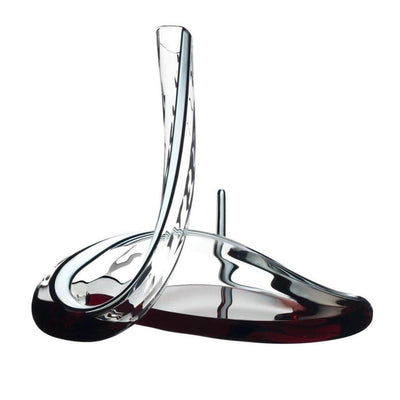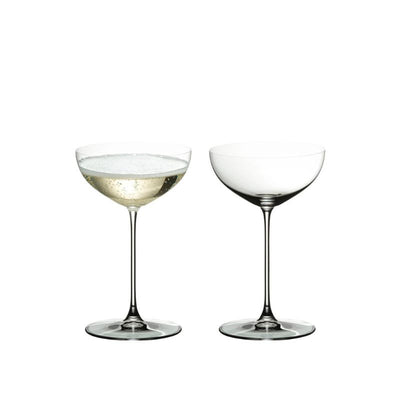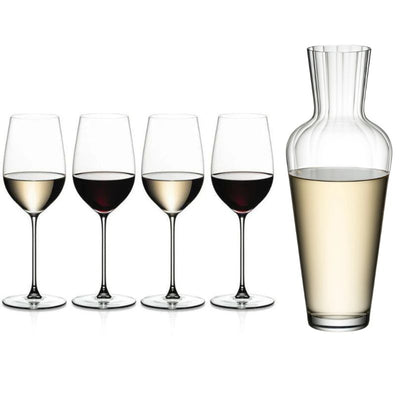Can Wine Really Contribute to a Healthy Lifestyle?
 I was reading an article, the other week, about Jeanne Louise Calment, who was a French supercentenarian. With a documented lifespan of 122 years and 164 days, she was the oldest person in history whose age has been verified.
I was reading an article, the other week, about Jeanne Louise Calment, who was a French supercentenarian. With a documented lifespan of 122 years and 164 days, she was the oldest person in history whose age has been verified.
She led a fascinating life, as you might expect, being born in 1875 and living until 1997, and whilst medical studies of her health and lifestyle attribute her longevity to genetics or “other unknown factors”, contemporaries suggest that a combination of a positive attitude, a healthy, active lifestyle (she took up fencing at 85), and a rich social life played a significant role. Being wealthy and never having to work may also have helped!
Jeanne herself put it all down to “Olive oil, chocolate and port wine ", and was, apparently, known to hold up a glass and proclaim "This is why I've outlived all my doctors!"
As a wine lover myself, I've long been curious: is there legitimate science behind the age-old notion that wine might actually be good for us, or is it just another comforting myth we tell ourselves while pouring "just one more glass"?
The Historical Medicine Bottle
Wine's medicinal use predates modern medicine by millennia. Ancient Egyptians prescribed it for ailments ranging from digestive issues to pain relief. Hippocrates, the father of medicine, recommended specific wines for fever, as a wound disinfectant, and even as a nutritional supplement during convalescence.
By the Middle Ages, European monasteries maintained medical gardens where they produced medicinal wine infusions. These early pharmacists understood something we're only now confirming scientifically, that certain compounds in wine have biological effects beyond simple alcohol content.
The French Paradox: The Mystery That Launched a Thousand Studies
In the early 1990’s, researchers observed something puzzling: despite diets rich in saturated fats, certain French populations showed surprisingly low rates of coronary heart disease. Their regular consumption of red wine emerged as a potential explanation, sparking global interest in wine's "health properties".
This "French Paradox" launched waves of research investigating how components in wine might protect against cardiovascular disease. The findings suggested that moderate wine consumption (particularly red wine) correlated with reduced risk of heart disease, lower blood pressure, and improved cholesterol profiles compared to abstinence or heavy drinking.
But, correlation isn't causation, and the story gets more complicated.
Inside the Bottle: The Compounds Behind the Claims
Resveratrol: Star or Supporting Actor?
Resveratrol became the celebrity molecule of wine health research. It’s a polyphenol found in grape skins (especially red varieties) with antioxidant and anti-inflammatory properties. Laboratory studies showed promising results: extended lifespan in certain organisms, reduced inflammation, and protection against heart disease markers.
However, there's a catch. The concentrations used in successful lab studies are far higher than what you'd get in a glass of wine. To consume a therapeutic dose of resveratrol solely from wine would require drinking amounts that would negate any potential benefits with alcohol's harmful effects.
Dr. Richard Semba, of Johns Hopkins University in Baltimore, tracked nearly 800 older adults in Italy for nine years and found no correlation between resveratrol levels in their bodies and their health outcomes. "The story of resveratrol turns out to be a bit more complex than we originally thought," he noted.
The Polyphenol Picture
While resveratrol may have grabbed headlines, wine contains hundreds of other polyphenols that may work together. These include:
- Anthocyanins: Particularly abundant in bold reds like Cabernet Sauvignon and Syrah, these compounds give red wine its colour and are strong antioxidants.
- Procyanidins: Found in high concentrations in Tannat, Italian Sagrantino, and Nebbiolo, these have been linked to cardiovascular benefits
- Catechins: Present in both red and white wines (though higher in reds), these may help reduce inflammation
Research suggests these compounds may help reduce oxidative stress (an imbalance in the body where there are too many free radicals, unstable molecules, and not enough antioxidants to neutralize them. This can lead to cell and tissue damage), improve endothelial function (the health of blood vessel linings), and modulate our inflammatory responses.
Interestingly, wines from high-altitude vineyards or those grown with less pesticide intervention (both on the increase in viniculture) often show higher concentrations of these beneficial compounds.
The Emerging Microbiome Connection
One of the most exciting frontiers in wine health research involves our gut microbiome, the ecosystem of bacteria that influences everything from digestion to immune function and even mental health.
Recent studies suggest that moderate wine consumption, particularly of red wine, may promote a more diverse and healthy gut microbiome. A Kings College London study found that red wine drinkers had greater bacterial diversity in their intestinal microbiome than non-wine drinkers, even when allowing for other factors.
This diversity is associated with better gut health and lower rates of obesity and metabolic diseases. The effect was stronger with red wine than with other alcoholic beverages, suggesting that polyphenols, not alcohol itself, are the heroes.
Professor Tim Spector, who led the research, explained: "This is one of the largest ever studies to explore the effects of red wine in the gut and adds to the growing body of evidence suggesting polyphenols play a key protective role."
The Double-Edged Sword: Balancing Benefits Against Risks
Despite these promising findings, we can't ignore the elephant in the tasting room: alcohol is a known carcinogen with dose-dependent risks. The World Health Organisation has classified alcoholic beverages as Group 1 carcinogens, meaning there's sufficient evidence that they can cause cancer in humans.
The potential benefits of wine exist within a narrow window of consumption:
- For women: Up to one standard drink per day (150 ml at 12% ABV)
- For men: Up to two standard drinks per day
Beyond these levels, any cardiovascular benefits are quickly outweighed by increased risks of cancer, liver disease, and other alcohol-related harms.
Dr. Walter Willett of Harvard School of Public Health summarises the situation clearly: "If you're a non-drinker, health benefits alone aren't a reason to start drinking. But if you enjoy an occasional glass of wine with dinner, the evidence suggests this can be part of a healthy lifestyle for most people."
Beyond Chemistry: The Cultural Benefits of Wine
Some of wine's health benefits may extend beyond its chemical composition. The context of consumption matters:
- Wine is typically consumed with food, slowing alcohol absorption
- It's often enjoyed in social settings, providing emotional and psychological benefits
- Wine drinkers tend to sip and savour rather than drinking quickly
- The ritual of wine appreciation can be mindful and stress-reducing
These cultural aspects of wine consumption may partially explain why studies of Mediterranean populations show better results than would be predicted by the chemical composition of wine alone.
The Bottom Line: What We Know and What We Don't
After decades of research, what can we say definitively about wine and health?
- Moderate consumption (particularly of red wine) is associated with reduced risk of heart disease in some populations
- Wine contains bioactive compounds with demonstrated antioxidant and anti-inflammatory properties
- These compounds may positively influence gut microbiome diversity
- Any potential benefits apply only to light-to-moderate consumption
- Benefits are quickly outweighed by risks when consumption exceeds moderate levels
- Individual variation means benefits and risks differ from person to person
The scientific consensus remains that while moderate wine consumption may offer some health benefits for certain individuals, these benefits aren't substantial enough to recommend wine as a health product. The decision to include wine in your lifestyle should be based primarily on enjoyment, with any potential health benefits considered a possible bonus rather than the primary motivation.
As wine writer Hugh Johnson wisely observed: "Wine is the only artwork you can drink."
Perhaps we should continue to appreciate it primarily as such - a cultural pleasure that, when enjoyed responsibly and in moderation, might just happen to have some side benefits for our health.
A Toast to Moderation
So where does this leave us?
If Jeanne Calment’s longevity secret was indeed her nightly glass of port, science suggests it might have less to do with resveratrol and more to do with her thriving gut microbiome - possibly the world's most sophisticated wine appreciation society. Those billions of bacteria were throwing a polyphenol party for a century, while the rest of us were just trying to pronounce "procyanidins."
Here's to them, and to enjoying wine for what it truly is: a pleasure first, a potential health benefit second.
And while scientists continue debating whether wine is medicine, one thing remains clear: it's certainly cheaper than therapy and more enjoyable than most prescription drugs - just don't expect your health insurance to pay for it.
Sláinte Mhath











Leave a comment